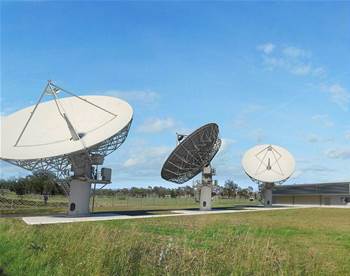Satellite operators want the Australian Communications and Media Authority to stop reallocating spectrum from satellite communications to the mobile sector.
In a report published this week by the Communications Alliance (pdf), the satellite industry calls on the ACMA to take a more international approach to spectrum replanning.
Launching the report, the alliance’s Satellite Services Working Group said it wants the government “to participate more comprehensively in international decision-making about the global coordination of use of radiofrequency spectrum bands that deliver video, data, content and connectivity for all Australians”.
The most contested spectrum is in the C-band.
The report stated: “C-band spectrum is unmatched for comprehensive, wide area satellite coverage with the implementation of hemispherical and global coverage beams which are implementable thanks to the specific favourable propagation characteristics of the band.”
Fixed satellite services have, however, lost “significant parts of the 3400 – 3700 MHz band” to 5G mobile services.
If spectrum reallocations all go ahead according to the ACMA’s plans, the report stated: “Only the 4000 – 4200 MHz band will be protected for FSS Earth receive across metro, regional and remote areas, which will not be shared with 5G or WBB services.
“This matter is of continued concern to FSS operators, who request access to adequate and economically viable C-band spectrum to support Australian customer requirements, as well as technical and regulatory measures that will adequately protect the continuation of the current and future FSS receiver operations”, the report said.
The challenge in protecting spectrum, the report said, is that the ACMA regards such decisions as domestic.
The report said: “The SSWG is therefore occasionally somewhat disappointed when our members are told certain issues being addressed by the ITU are considered ‘domestic matters’ from an Australian perspective and that our local regulatory stakeholders do not wish to engage in a global coordination process”.
“Very few, if any issues in the ITU are domestic matters, in our view, and the outcome of deliberations on all of them affect the industry. The SSWG will highlight current issues in our discussions below, but the comment is a general one,” it said.
“The SSWG encourages the ACMA to be more involved in relevant ITU and APT discussions and to empower industry representatives to make their needs and perspectives heard in the forums.”
As well as Australian satellite operators and resellers, the working group includes international players like Inmarsat, Intelsat, Amazon and SpaceX.


























